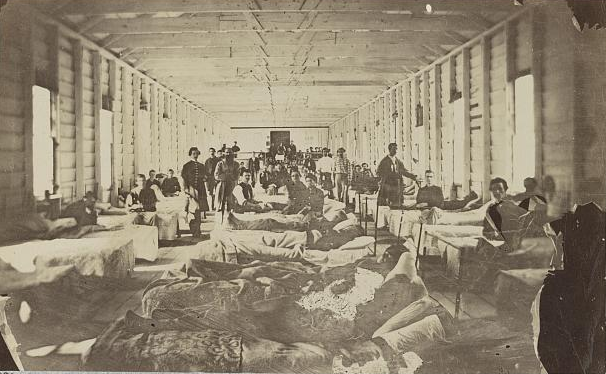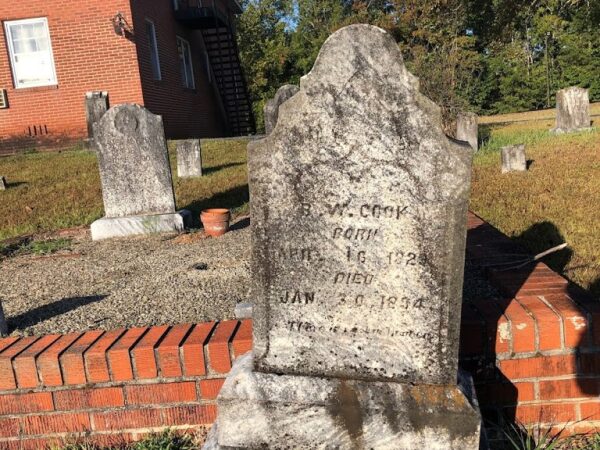It was no place for the sick or injured. Damp, cold, lacking in blankets and tents, the Georgia 53rd Company C, “Fayette Planters,” camped in a wooded area just outside of Fredericksburg, Virginia. It was December of 1862 and it had already proven to be a bitterly cold winter.
 |
| Surgeon at work during Civil War Library of congress |
It had only been eight months since David Ganus had enlisted in the same regiment of the Confederate Army as his two brothers-in-law, James Blackmon and Burton Cook. He left behind his young wife, Malinda, and three small children, in order to fight for the southern cause. Many had thought the war would be short and expected to return home to their families soon.
David’s regiment fought in many of the historic battles and he managed to come through each without injury, but in the month of December, while his regiment was in Fredericksburg, David became extremely ill.
David’s service records indicate that early in December he became ill with the all too common typhoid, while other records show that he suffered exposure and pneumonia. Whether he suffered from all three or there was confusion due to the extent of his illness or possibly lack of knowledgeable medical personnel to properly diagnose his illness, we get the picture of a man that was extremely ill. David’s best chance for survival was to be transferred out of camp to the nearest hospital, which presented yet more challenges.
 |
| Bringing wounded soldiers to the cars Library of Congress |
Initially there was no organized way to transfer the sick and the injured to hospitals. Recently when we visited the Chimborazo Medical Museum in Richmond, Virginia, we learned about some of the heart wrenching conditions endured by the soldiers. There we saw some of the crude and primitive medical instruments used in the treatment of the soldiers and watched a short video about the civil war hospitals of the area.
Eventually the military came up with a system where soldiers were transported from their camps to the hospitals, but the trip was often very difficult for someone whose health was already compromised.
The sick or wounded soldier was first taken in the back of a wagon over rough and bumpy dirt roads to a location where he could be loaded onto a train and he would then travel the rest of the way by rail. Miserably hot in the summer and bitterly cold in the winter, void of even the simple comforts, the rough trip was often excruciating for a soldier already in pain and misery. David had to make the nearly sixty mile trip to Winder Hospital in cold, frigid December temperatures while suffering symptoms common to his illness that could have included fever, nausea, diarrhea, coughing, aching and fatigue. However long the trip took, I am sure that for those in such desperate circumstances, it felt like eternity.
 |
| Hospital Ward Alexandria Library of Congress |
Had David’s brothers-in-law, James and Burton helped to load him onto the wagon? Had they worried and tried to help as they watched their wife’s younger brother grow increasingly more ill? Did they write home to tell of his condition?
After about a week at Winder Hospital and just two days before Christmas, on December 23, 1862, twenty-six year old David Ganus passed from this life. He died as most soldiers died, without any family at his side and far from home. His body was taken to nearby Hollywood Cemetery where he was buried alongside many other Southern soldiers.
While sadly Winder Hospital no longer stands, I knew that our Virginia trip would not be complete without a visit to Hollywood Cemetery to see David’s final resting spot.
Copyright © Michelle G. Taggart 2014
For more of David’s story, see this earlier blog post .



It's a wonder any soldier survived. Your visit to the museum in Richmond is a good reminder of a different kind of resource for those of us struggling to put our ancestors' lives in context.
I had the same thought. That trip was amazing. It gave me a feel for things in a way no book can.